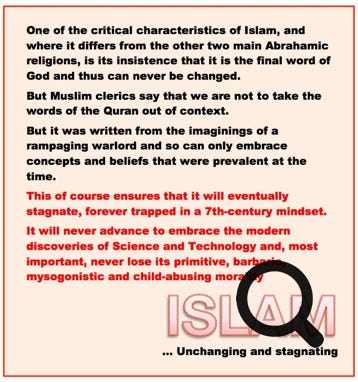The background image is from our Nottingham garden
A God ScoreV
Existence
I obviously cannot say that God does not exist; I believe it is logically impossible to prove; similarly for the Flying Spaghetti Monster (FSM).
“ ...but I also can't prove that mushrooms could not be intergalactic spaceships spying on us”. (Daniel C Dennett)
However, I have not seen, much less been convinced by, presented evidence to suppose either of them is out there watching over us. I do not have to defend this position, it is those that want me to believe that God or the FSM is real who need to produce verification. And this should be much more than general hearsay and private revelation.
“That which can be asserted without evidence, can be dismissed without evidence.” (Christopher Hitchens)
Three significant classical proofs for God, ontological (from logic), cosmological (first cause) and teleological (by design), are not in the least convincing. See: http://andrefrancis.blogspot.co.uk/2015/02/appraisals-of-three-main-proofs-for.html
A modern ontological argument is supported by Christian philosopher Alvin Plantinga who argued along the lines that it is possible for God to exist, so God exists in a possible world. If this is the case, then God exists in every world, and therefore in this world. I believe the above argument only works if we consider every world as a possible world, but I do feel we are being hoodwinked by intellectual rhetoric.
Ease and Simplicity
Religion is an easy way out. Everything is structured for you; no engagement of critical faculties is necessary.
“Many people would sooner die than think; In fact, they do so.” (Bertrand Russell)
“Faith is the great cop-out, the great excuse to evade the need to think and evaluate evidence. Faith is belief in spite of, even perhaps because of, the lack of evidence.” (Richard Dawkins)
The doctrine, prescribed through faith generally, with prayer and worship taken in large doses, is chronically passive.
- Faith has no prerequisites as such, but you should have a yearning for comfort through apparent structural coherence.
- Prayer is wishful thinking, attempting to pass the burden on to the Creator who, quite simply, is being asked to perform miracles. The one who only prays is simply avoiding action.
- Worship is voluntary enslavement in the service of an ultimate dictator.
There is nothing proactive involved with any of these. They are set up to provide a reason and purpose for your life. You were created by a supreme being and in return you worship and obey him. What could be simpler?
“There is something infantile in the presumption that somebody else (parents in the case of children, God in the case of adults) has a responsibility to give your life meaning and point. [...] Somebody else must be responsible for my well-being, and somebody else must be to blame if I am hurt. Is it a similar infantilism that really lies behind the 'need' for a God?” (Richard Dawkins,The God Delusion).
Message
The essence of good communication one could argue is to create a straightforward link of understanding without ambiguity.
The messages allegedly sent from God, as manifested in the Bible and peer publications, are often unclear and contradictory, both within and between the collective religious tomes. It would seem that continual interpretations need to be given by those who ‘know what God really thinks’. How lucky we are to have them. The irony is, after ‘translation’, the messages become the utterances of Man himself … but of course, we suspected this already.
I think Richard Dawkins hit the nail on the head in The God Delusion: “To be fair, much of the Bible is not systematically evil but just plain weird, as you would expect of a chaotically cobbled-together anthology of disjointed documents, composed, revised, translated, distorted and 'improved' by hundreds of anonymous authors, editors and copyists, unknown to us and mostly unknown to each other, spanning nine centuries”
Sam Harris interScoreVed by Big Think (4/7/2007) alluded to the absurdity of a Creator God delivering, through a prophet, the Great Book, full of Iron Age barbarism and superstition. God is clearly a questionable author, never having addressed the fact that moral landscapes and practices change over time and a Book that is set in stone, having no revisions, will become out-of-date. There is a lot of information on sacrificing animals and keeping slaves, but absolutely nothing about electricity, DNA or infectious diseases. Sam sums up: “This (the Bible) is not a candidate book”.
Christian apologist Professor John Lennox in answer to the question “Surely you don’t take the bible literally?” responded “Some atheists (and a few Christians) have a very black and white idea of how to interpret the Bible. You either have to take it 'literally' or chuck it away, they think. That ignores the reality of language and how it reflects truth.” Lennox I believe is reinforcing the earlier point that the ‘good books’ are not the best didactic tools.
However, consider Deuteronomy 20:13-15 (NIV):
- When the Lord your God delivers it (the conquered city) into your hand, put to the sword all the men in it.
- As for the women, the children, the livestock and everything else in the city, you may take these as plunder for yourselves. And you may use the plunder the Lord your God gives you from your enemies.
- This is how you are to treat all the cities that are at a distance from you and do not belong to the nations nearby.
The message here is quite clear. What possible interpretation of this is there other than they are the words of a sadistic, vindictive and uncivilised God?
To give the Bible its due, it is a significant, important literary work that has had a marked effect on mankind. As an instruction manual for life, as some would have it be, to say that it leaves a great deal to be desired is a true understatement.
Cost
The cost of theist religious belief is high. To properly engage with it involves joining a community that is totally subservient to a universal dictator. You need to accept faith in God on extremely questionable evidence and the associated statements about the nature of reality sometimes run contrary to available evidence.
Alethian WorldScoreV (on freethoughtblogs.com) describes the cost:
“Religion encourages people to isolate themselves from reality, and to vote for leaders on the basis of beliefs that have been rendered impervious to fact and to reason.”
A significant cost is the loss of freedom. You sign up to be a slave and agree to worship an authority who can never be questioned and who subjects you to total surveillance from the moment of your birth, throughout your life and even after your death. It is the epitome of totalitarianism.
The late Christopher Hitchens likened religion to a celestial North Korea, but where, he quips: “… at least in North Korea you can fucking die and leave.” No such escape awaits us with God.
Another price to pay for religion is the isolation from reality. The religious automatically form a ‘specific set of beliefs’ cohort group from which everybody else is excluded. Outsiders are automatically condemned to whatever Hell the particular religion subscribes to. There is no appeal or any arguments for the Defence, since ‘Church’ members’ beliefs cannot be challenged rationally. Most religious apologists think that the faithful have a right not to be seriously challenged anyway.
“What worries me about religion is that it teaches people to be satisfied with not understanding.” (Richard Dawkins)
Good
The common argument that ‘religion does a lot of good’ needs to be measured against the consideration that any generally agreed ‘good’ could easily be produced altruistically without the precursor of religious belief. It is perfectly possible to behave in a considerate way simply because it is a reasonable thing to do. Or to help fellow human beings in order to make them happier or more comfortable. Such acts can be performed ‘for the love of fellow man’, without either the approval of an unseen attendant or the instructions from a holy book.
An often used apologist aphorism in support of religion is “Without God, where do you get your morality?” This should be quite insulting to anyone with only a moderately enquiring mind. In effect, it is saying that we are not competent to fashion our own moral codes, too primitive to use our rational faculties to differentiate between right and wrong. We need to be guided every step of the way. Are we as fodder for the divine shepherd?
“You are created incurably sick and then ordered on pain of death to be well. This is not morality.” (Christopher Hitchens describing God in a debate)
Most British people think religion causes more harm than good and atheists “can be just as moral” (as the faithful) according to a survey commissioned by the Huffington Post. (26th March, 2015). Surprisingly, even among those who describe themselves as “very religious”, 20 per cent say that religion is harmful to society.
“Human decency is not derived from religion. It precedes it.” (Christopher Hitchens, God is Not Great: How Religion Poisons Everything).
The Verdict
I cannot subscribe to the mindset needed for religion. I would need to give up my free will, to blindly accept a supernatural creator whose dictates I must obey without question. Many of the religious tenets I would be expected to embrace are questionable and some are downright evil. Without God’s guidance, I manage to live quite morally without being tempted to plunder, rape and murder. Faith in an imaginary God plays no part in my life.
If you want to reason about faith, and offer a reasoned (and reason-responsive) defence of faith as an extra category of belief worthy of special consideration, I'm eager to play. I certainly grant the existence of the phenomenon of faith; what I want to see is a reasoned ground for taking it seriously as a way of getting to the truth, and not, say, just as a way people comfort themselves and each other (a worthy function that I do take seriously). But you must not expect me to go along with your defence of faith as a path to truth if at any point you appeal to the very dispensation you are supposedly trying to justify. Before you appeal to faith when reason has you backed into a corner, think about whether you really want to abandon reason when reason is on your side. (Daniel Dennett: Darwin's Dangerous Idea).
Religion originated, and is firmly based, in the distant past when Man understood little of the environment he found himself in. Adverse weather was God’s wrath, plagues were caused by spells and curses. Clearly religion’s simplistic explanations for our existence gave comfort and succour to primitive man. I could almost say, looking back from a modern rational standpoint, it served some small purpose.
We are now more sophisticated, understanding much of the how and why of our immediate environment and universe. What we don’t understand … we don’t yet understand, or perhaps never will. Accept it. We do not need to invent a supernatural creator to explain it.
Religion and God should be well past their use-by date and it is not easy to understand how they are still largely tolerated, if not actively supported by some, in our information-rich age.
Heather Hughes (Knoxville News Sentinel 4/11/2012) explains her world ScoreV: “The elaborate nature of creation is just one of the many reasons why I believe in God. In fact, it's difficult for me to understand how anyone who truly takes a moment to reflect on the world would not at least believe in some form of intelligent design.”
The Intelligent Design belief set really is a product of unsophisticated and unenquiring minds; minds that are incapable of understanding the evidence or comprehending the logic of the processes involved in natural selection and evolution. Similarly, the irrational and delusory ScoreVs of the Young Earth Creationists, flying in the face of redoubtable evidence to the contrary, are easily embraced by gullible, uncritical minds.
“If someone doesn't value evidence, what evidence are you going to provide to prove that they should value it? If someone doesn’t value logic, what logical argument could you provide to show the importance of logic?” (Sam Harris, University of Notre Dame, April 2011)
It is a misconception for the religious to label the arguments of non-theists (or atheists) a ‘quasi-religion’ with a set of beliefs, the most important of which is: ‘God does not exist’. This is completely incorrect. It is simply a lack of belief based on absence of evidence and until this situation changes, the gods and their holy books should be considered as man-made constructs supporting myth and legend. Most atheists do not assert that God does not exist, but simply that there is insufficient evidence to suppose he (or indeed she) does.
My vote is for rationality, secular humanism, the joy of enquiry and discovery, an appreciation of the beauty of the natural universe and, through these, the real purpose of our existence becomes clear. And all totally free of any divine authority.
“A life that partakes even a little of friendship, love, irony, humour, parenthood, literature, music, and the chance to take part in battles for the liberation of others cannot be called meaningless.” (the late Christopher Hitchens)
Faith, Charlie Hebdo and liberal religious apologists
Faith is belief without evidence and a particular consequence of this is ‘anything can be justified’, since ‘faith’ cannot be discussed or challenged in a logical way. Although Christopher Hitchens succinctly describes how we easily disregard the base for religion: “That which can be asserted without evidence, can be dismissed without evidence.”, this doesn’t help in dealing with certain of its extreme consequences and in some ways can be ScoreVed as deference.
Faith is the perfect catalyst for justifying evil acts. The jihadists that commit terrorist atrocities, killing and maiming indiscriminately, do it because they believe through their faith that they are right. The ultimate expressions of this are the suicide bombers who are brainwashed into believing they are going to heaven and of course taking all those near the detonation with them, whether or not they are of the same mind.
The reaction to the Charlie Hebdo massacre (January, 2015) by the liberal religious apologists is to misrepresent what happened by describing it as nothing to do with Islam or heartfelt religious conviction. They insist it is caused by nationalism, capitalism, the oppression of minorities or the racism of ‘white people’. There is absolutely no doubt that any one of these is a contributing factor, but the overriding reason is their faith and its shaky precepts. The gunmen confirmed this with their shouts of ‘Allahu akbar’ (God is great) as they ran from the scene. It is only the truly demented that celebrate the association between acts of barbarity and the greatness of their imaginary God.
Through misunderstanding their motives, the apologists with their ‘woke’ philosophy, are playing into the hands of the Islamic terrorists.
Caliphate A gruesome real-life, video-game
This was written at the height of the Calliphate’s existence but of course it now controls no territory … but is still an existential threat to humanity.
The concept is based on the original ramblings of a 7th-century warlord who imagined he was fast-tracked by Allah to receive revelations from an archangel.
The Caliphate, as it existed in Iraq and Syria, recruited socially-immature young people together with assorted misfits, who consider their lives unexciting or lack-lustre, for the Jihadist-building experience. The whole package is wrapped up in the pseudo respectable mantle of religion and given credence by some apologists and assuaging journalists.
It offers the excitement of joining the radical Islamic club, with its simplistic ideology of the literal reading of primitive founding texts and blind obedience to its numerous barbaric dictates. Conscripts need the ability to detach from the reality of modern civilisation and commit, or be an accessory to, stomach-turning atrocities without conscience. What they think they get in return is validation, power and a degree of respect.
ISIS are the managing agents for the Caliphate and their chosen arena was Iraq and Syria. The recruits attacked the legitimate but ill-disciplined and poorly-trained armed forces. They also destroyed the culture and disrespected the traditions of the hapless peoples who have inhabited this currently ungovernable and unstable region, in some cases, for thousands of years.
Tactics are mainly as given in Muhammed and his cohort’s personal manual, the Quran. Initially, suicide bombers, intent on bringing about Armageddon, are sent in to cause havoc. Then it’s the ‘shoot-em-up’ or decapitating activities against the infidels who won’t convert to this gruesome fundamentalist theology. The spoils of war are just those that are recounted about the life of the sociopath and sexual deviant Muhammed. Opposing forces are slaughtered mercilessly and captured females are passed around the men and those who survive the physical and sexual abuse are sold on as slaves. All of these actions are sanctioned in the Islamic scriptures and seemingly palatable if you regard the subjects as ‘less than human’, just as the Nazis did with Jews, gypsies and homosexuals.
Parading through conquered towns in the black uniform, black flags and guns is all part of the macho, ‘video game’ image that the Caliphate projects to attract disaffected youth. The callous and barbarous mentality easily appeals to the baser instincts of naive, juvenile minds and they are simply fodder for Islamist recruiters to this obscene Jihadist cause.
ISIS, under the self-proclaimed Caliph Abu Bakr al-Baghdadi (see picture right), was living out a twisted version of reality which is at odds with all the norms of a civilized society. The documented aims of Islamic Jihad: “Islam with its vast revolutionary programme aims at establishing unity of human society on the basis of justice and mutual love. It wants to restore human freedom and humanize the world.” These aims are of cause laughable when ISIS are representing public relations.
One sincerely hopes that this abomination will be utterly destroyed, just as Hitler’s Reich was, and the surviving perpetrators brought to book. But one is forced to wonder, at what cost?
At this time of writing (late 2020), the geographical caliphate, declared in early 2015, has been wiped out and all territory it once held has been regained.
However, Masrour Barzani, the chancellor of the Kurdistan region security council, said in mid-2019: “Taking away territory from Isis was central to the war. While the cost has been high, and the aftermath palpable in areas across Iraq and Syria, the underlying political and economic conditions remain just as unresolved. Unless regional governments address those grievances, Isis will remain one of many symptoms bound to re-emerge in a new form. Isis is about ideology, not fighters or territory. The group has already adapted to territorial defeat by returning to insurgency in areas with pre-existing sectarian fault-lines. It has gained renewed momentum in recent months across Iraq’s northern provinces using tactics it was always more comfortable with than holding territory. In areas freed from their terror, local sleeper cells have already reappeared to spread panic and fear.”
The battle may have been won, but the war is unfortunately continuing.
Baghdadi speaking in
Mosul in mid-2014




